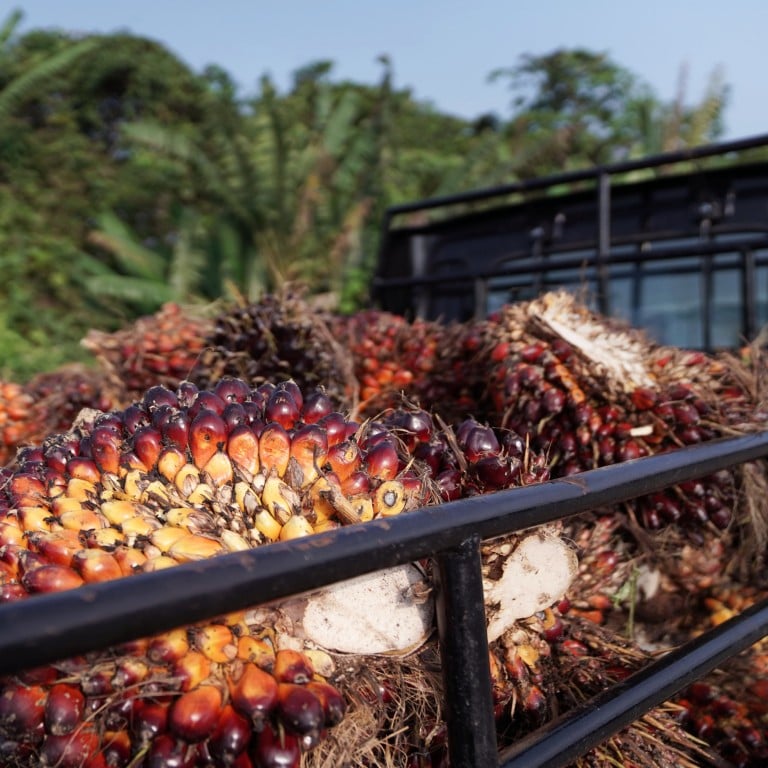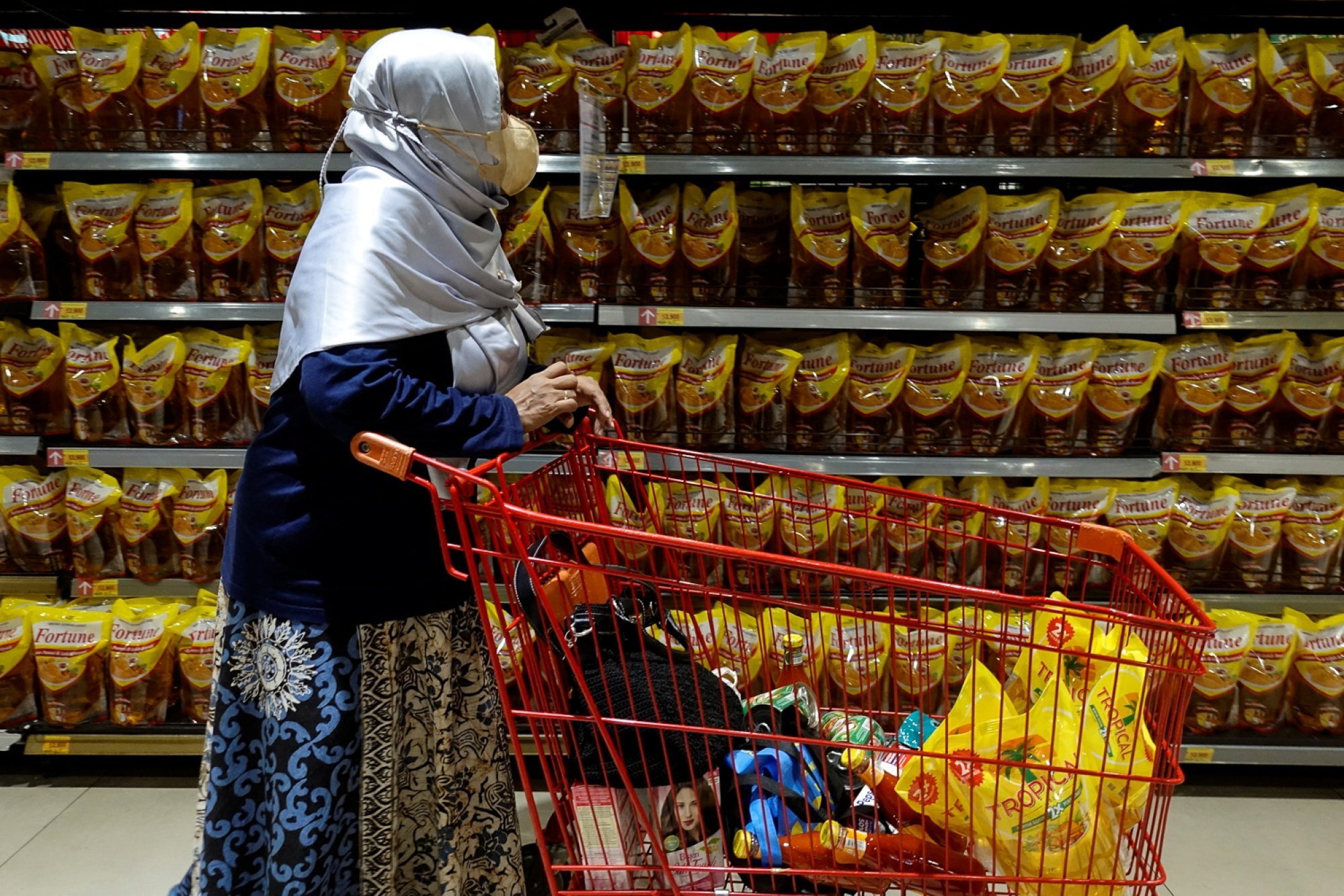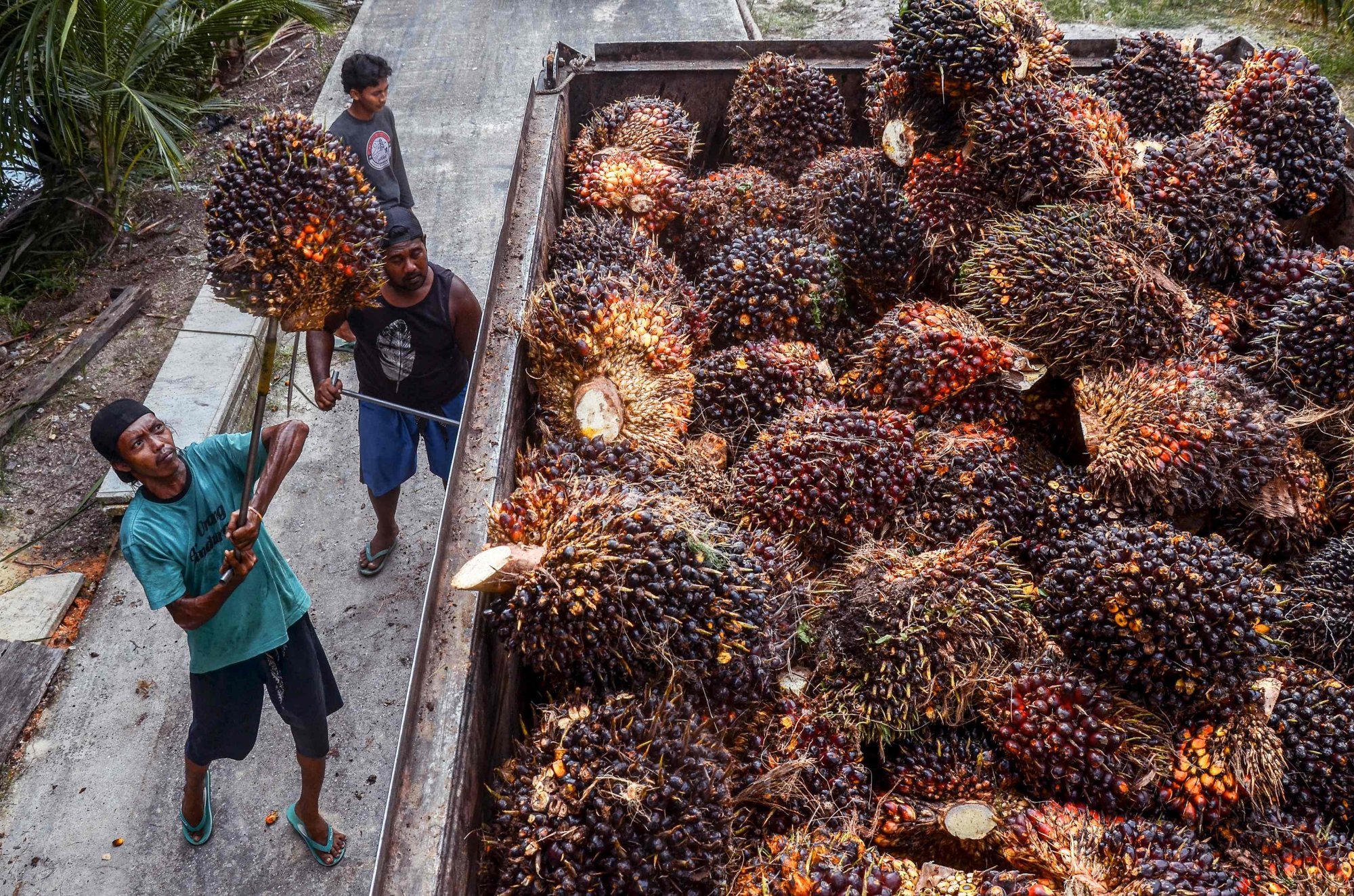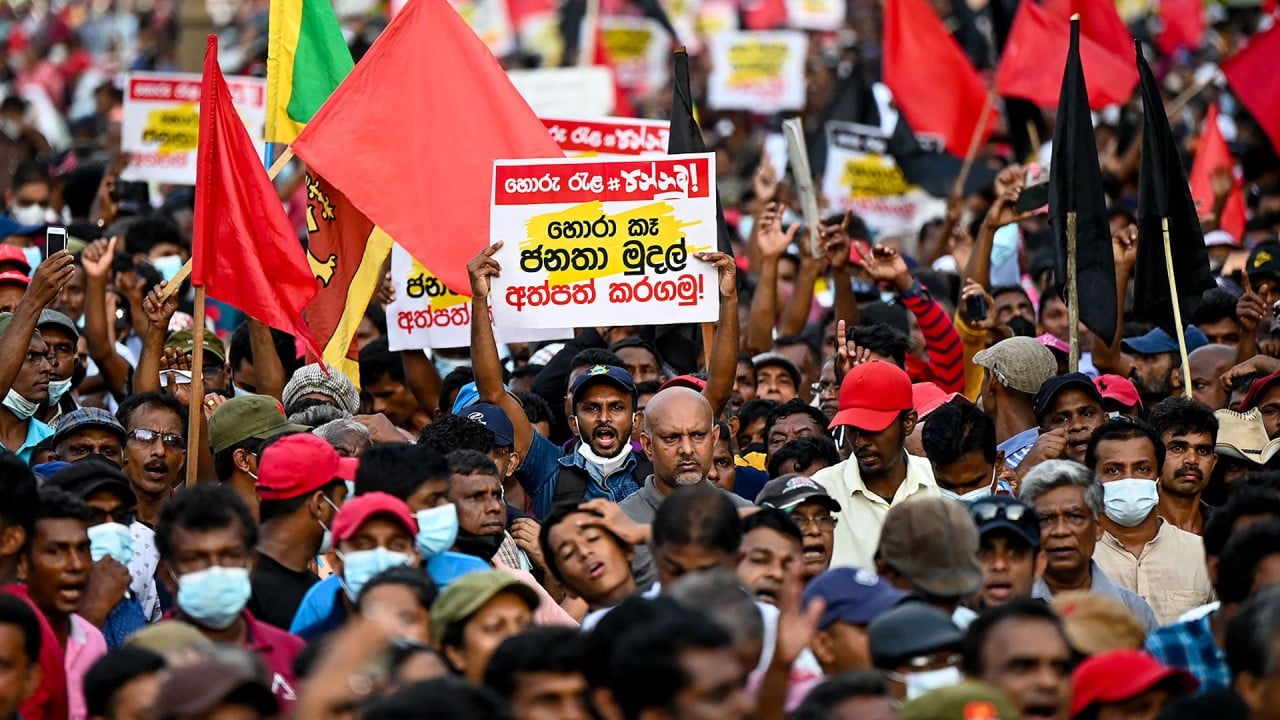
Indonesian palm oil export ban could ‘lead to unrest’ as food inflation hits Asia, Africa
- The ban comes at a time when the exports of all other major oils are globally under pressure, including sunflower oil amid Russia’s invasion of Ukraine
- As cooking oil prices soar and consumer power declines, one analyst warns of a heightened risk of ‘social unrest and pressures for political change’, as seen in Sri Lanka
Indonesia’s decision to ban palm oil exports has sent the commodity’s price soaring, triggering warnings it would worsen food inflation, cut spending power of consumers and lead to social unrest.
Indonesia is the world’s largest exporter of vegetable oils, with a share in the region of 35 per cent of the total of all oils, followed by Malaysia with 20 per cent, said James Fry, a commodities expert and chairman of the agribusiness consultancy LMC International.
“Indonesia’s decision affects not only palm oil availability but vegetable oils worldwide,” said Fry. “You can do the sums. Each month without Indonesian exports is equivalent to taking 3 per cent out of world vegetable oil export tonnages.”
Nobody can compensate for the loss of Indonesian palm oil. Every country is going to suffer
The ban comes at a time when the export tonnages of all other major oils are under pressure – soybean oil, due to droughts in South America; rapeseed oil due to disastrous crops in Canada; and sunflower oil because of Russia’s invasion of Ukraine and subsequent sanctions against Moscow, according to Fry.
“These oils cannot make up for the loss of Indonesian exports,” Fry said.
Ukraine war benefits Malaysian palm oil, but foreign worker shortage curbs output
On Monday, palm oil futures for July delivery rose as much as 6 per cent to 6,738 ringgit (US$1,550) a ton in Kuala Lumpur, the highest since March 11, reported Bloomberg. Indonesia on Friday said the shipment halt would start from April 28 and last until the government deemed the domestic shortage over.
Fry warned that high cooking oil prices, as part of the wider problem of high food and fuel prices in general, would cut the spending power of consumers, “and inevitably lead to more social unrest and pressures for political change”.
“Sri Lanka is a very topical example,” he said.
The South Asian country is suffering one of its economic crisis since independence from British rule in 1948, with months of lengthy blackouts and acute shortages of food, fuel and other essentials. Sri Lanka is also suffering from record inflation.
The crisis has sparked countrywide protests for weeks, calling for President Gotabaya Rajapaksa to resign over mismanagement and corruption.
Protests have also broken out in Indonesia where demonstrators rallied against high cooking oil prices ahead of the palm oil ban announced by Indonesian President Joko Widodo last Friday.
“Reductions in import tariffs or the use of export restrictions could help to resolve individual country food security challenges in the short term, but they would drive up prices on global markets,” said Rajendra Aryal, Food & Agriculture Organisation (FAO) representative in Indonesia and Timor Leste.
He said it was difficult to assess the impact of the ban on other countries at this stage since the situation was evolving. “However, this situation is going to affect the vulnerable families with rising food prices across the region.”
Fry said the latest move from Indonesia was coming on top of Russia’s damage to world wheat export supplies from Ukraine and Russia.
The latest action was making the position of consumers in the “poorest countries and the poorest segments of populations around the world even harder”.
“The most exposed will be in Africa and Asia, which have a heavy dependence on vegetable oil imports,” Fry said.

Indonesia typically supplies almost half of India’s total palm oil imports, while Pakistan and Bangladesh import nearly 80 per cent of their palm oil from Indonesia.
Palm oil, the most widely-used edible oil, is also used as biodiesel feedstock.
“Nobody can compensate for the loss of Indonesian palm oil. Every country is going to suffer,” said Rasheed Jan Mohd, chairman of Pakistan Edible Oil Refiners Association.
The unexpected move is “negative news” for vegetable oil consumers in many countries, which currently depend on palm oil in view of shortages in sunflower oil, rapeseed oil and soybean oil, Public Invest Research said in a note on Monday.
Malaysia is set to benefit as most of the palm oil importers will shift the demand from Indonesia to Malaysia, the note said.
‘A tough choice’: Indians tuck into quick-fix meals to survive inflation
The Indonesian government has set a cap of 14,000 rupiah (US$0.97) per litre for bulk cooking oil, but Trade Ministry data shows it was sold at more than 18,000 rupiah this month, indicating there is a significant shortage of crude palm oil (CPO) supplies for domestic cooking oil processing as local refiners need to source for CPO at higher price, the note said.
UOB Kayhian said in a note on Monday the prolonged Russia-Ukraine war could further tighten the global oilseed and vegetable oil supplies and this would prolong the upcycle in vegetable oil prices.
Ukraine and Russia are entering the critical month for sunflower planting, which should start in April, and the war could hamper the coming planting season. The two countries’ sunflower oil exports account for 10 per cent of global vegetable oil exports, UOB Kayhian said.
Unless governments choose to release oils from biofuel uses, such as by suspending or deducing mandates, to allow oils to go to food users, prices will go higher, the longer the Indonesian action continues, Fry said.
“Ultimately the market will have to balance reduced supplies of oils for export against demand, by using prices as a rationing instrument that hits the poorest the hardest,” he said.

Malaysia’s palm oil board on Monday said it was time for countries to reconsider their food versus fuel priorities, as Indonesia’s decision to ban palm oil exports had ignited a “crisis” of global edible oil shortage.
On Sunday, the Malaysian plantation industries and commodities minister Zuraida Kamaruddin told local media that the country was “ready and able” to supply the commodity, citing how production was expected to rise as foreign workers were expected to return following the reopening of borders.
Her deputy, Wee Jeck Seng, however cautioned that any production surge would take time to take effect. “This imbalance in demand and supply would see prices of palm oil and other competing oils soaring,” he was quoted as saying by the state news agency Bernama.
Additional reporting by Bloomberg, Reuters


